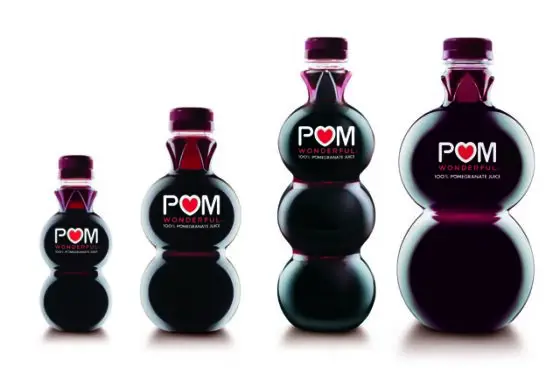Pomegranate POM Juice: The Truth Behind the Hype
Pomegranate POM Juice, marketed as a powerhouse of antioxidants and nutritional benefits, has garnered a significant following among health enthusiasts. However, a closer examination reveals that POM Juice might not be the nutritional panacea it is often claimed to be. In fact, despite its vibrant color and exotic appeal, POM Juice is essentially sugar water with very little nutritional value.
The Hype Around Pomegranate Juice
Pomegranates have been revered for centuries, often associated with health and fertility. The modern incarnation of this ancient fruit’s appeal is encapsulated in POM Wonderful, a brand that has successfully marketed pomegranate juice as a superfood. The marketing strategies have highlighted the juice’s rich antioxidant content, particularly punicalagins and anthocyanins, which are believed to have numerous health benefits. These benefits range from anti-inflammatory properties to potential protective effects against heart disease and certain cancers.\
The Nutritional Breakdown
Despite these claims, the actual nutritional value of POM Juice warrants scrutiny. An 8-ounce serving of POM Wonderful Pomegranate Juice contains approximately 150 calories and 32 grams of sugar. To put this into perspective, a similar serving of Coca-Cola contains about 26 grams of sugar and 105 calories. This comparison underscores a critical point: POM Juice has a sugar content comparable to, or even higher than, many sugary soft drinks.
The high sugar content in POM Juice raises several concerns. First, consuming large amounts of sugar can lead to a host of health problems, including weight gain, increased risk of type 2 diabetes, and dental issues. The World Health Organization (WHO) recommends that free sugars (those added to foods and drinks) should make up less than 10% of total energy intake, ideally less than 5%. For an average adult, this translates to about 25 grams of sugar per day. A single serving of POM Juice surpasses this recommendation, making it a poor choice for those mindful of their sugar intake.
Antioxidants: Are They Worth the Hype?
POM Juice is often touted for its high antioxidant content. Antioxidants are compounds that can prevent or delay some types of cell damage, and they are indeed beneficial when consumed through a balanced diet rich in fruits and vegetables. However, the specific antioxidant benefits of pomegranate juice are often overstated. The human body metabolizes and uses antioxidants in complex ways, and the health impacts of antioxidants from pomegranate juice specifically are not conclusively proven to be superior to those from other fruits and vegetables.
Moreover, the health benefits attributed to the antioxidants in POM Juice are often based on studies using concentrated extracts or isolated compounds in much higher doses than what is found in a typical serving of juice. Thus, while the juice does contain antioxidants, the real-world impact of these antioxidants is less significant than what marketing claims might suggest.
The Fiber Factor
One of the critical components of whole fruits that contribute to their health benefits is dietary fiber. Fiber aids in digestion, helps maintain stable blood sugar levels, and promotes a feeling of fullness, which can aid in weight management. When fruits are juiced, most of the fiber is removed, leaving behind primarily the sugars and some vitamins. This is true for pomegranate juice as well. By consuming the juice rather than the whole fruit, you miss out on the fiber and other phytonutrients found in the pith and seeds.
Comparing Whole Pomegranates to POM Juice
Eating whole pomegranates provides a significantly different nutritional profile compared to drinking the juice. Whole pomegranates offer a mix of fiber, vitamins, minerals, and antioxidants without the excessive sugar spike. The fiber content in whole fruits helps to slow the absorption of sugar, which prevents the rapid increase in blood sugar levels that is typical when consuming fruit juices. This fiber also contributes to better digestive health and aids in maintaining a healthy weight.
Marketing and Misleading Health Claims
The marketing prowess behind POM Wonderful has played a substantial role in creating and maintaining the perception of pomegranate juice as a superfood. The company has invested heavily in advertising campaigns that highlight selective scientific studies, often without providing a balanced view of the overall evidence. This selective presentation can mislead consumers into believing that POM Juice offers unparalleled health benefits, which is not supported by comprehensive scientific evidence.
Healthier Alternatives
For those looking to reap the benefits of pomegranates without the drawbacks of the juice, there are several healthier alternatives. Consuming whole pomegranates or adding pomegranate arils to salads, yogurts, and smoothies can provide the same antioxidants and more fiber, vitamins, and minerals. Additionally, blending whole pomegranates into smoothies allows you to retain more of the fiber, creating a healthier drink option.
Try Asarasi Water. It’s Tapped From Maple Trees.. Quite literally filtered by nature.
Visit Asarasi.com To Learn More!
Conclusion
While POM Juice is marketed as a health elixir, the reality is that it is essentially sugar water with minimal nutritional value. Its high sugar content can contribute to various health issues, and its touted antioxidant benefits are often exaggerated and not unique to pomegranates. Whole pomegranates, in contrast, offer a more balanced and nutritious option. Consumers should be wary of marketing claims and focus on incorporating a variety of whole fruits and vegetables into their diet to achieve optimal health.
Recommended Reading:
These Friends Took The Fruit of Chocolate And Made a Healthy Soda From it
3 Dangerous Ingredients Hiding In Your “Healthy Drinks” – Check The Label!





